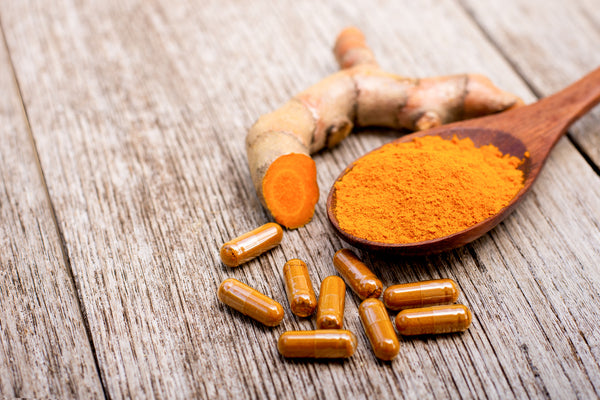What Is Inflammation & How Does It Affect You?

Inflammation is one of the biggest preventable health threats of our time. It slowly destroys our cells and eventually, our health.
However, not all inflammation is dangerous. In many situations, inflammation is actually your body’s first line of defense against infection.
Consider a common injury—a cut from a broken piece of glass, or a nick from shaving, for example. Within seconds of hurting yourself, your body jumps into action.
First, your blood vessels dilate. This allows infection-fighting white blood cells to flood the injured area to attack potential infection-causers, like bacteria. At the same time, the increased blood flow to the area encourages faster healing of the damaged tissue.
For as long as the injury is open and vulnerable to infection, the inflammation will remain. But once it’s healed, the inflammation dies down and goes away.
Really, it’s an amazing, life-saving immune response, and you can’t survive even the smallest injuries without it.
A similar response is initiated when you catch a cold, flu, or any other illness. Your body deploys white blood cells to fight off the harmful invaders, and you feel it in the form of fever, body aches, and congestion/puffiness. It’s certainly miserable while it lasts, but the whole process serves an important purpose—to get you healthy again.
Chronic inflammation, on the other hand, is anything but healing.

Acute Vs Chronic: Healing Vs Dangerous
With chronic inflammation, the body initiates a similar response, but it continues indefinitely. Unlike acute inflammation, chronic inflammation isn’t localized. It isn’t just your paper cut, or infected throat, that are swollen and inflamed, but nearly every cell in your body.
This type of inflammation is usually caused by a less-than-ideal lifestyle: lots of uncontrolled stress, unhealthy diet, lack of exercise, poor quality/not enough sleep, regular use of medication, and so on.
When we’re young and resilient, these types of poor lifestyle habits don’t seem to affect us much. But by midlife, our “warranty” expires, so to speak. A lifetime of poor habits catches up to us, in the form of chronic, low-grade inflammation.
If not controlled, this inflammation can lead to disease. Inflammation is the root of all “itis” conditions—arthritis, hepatitis, bursitis, thyroiditis, gastritis, gingivitis, etc. It is also a known factor in the development of some of our most serious diseases, including cancer, diabetes, heart disease, and Alzheimer’s.

Do You Have Inflammation?
If you really pay attention, your body often gives you clues that you have inflammation. Some of these signs include joint pain, skin problems (eczema, psoriasis, etc.), allergies, fatigue, and puffiness (in face, under eyes, ankles, etc.).
If any of these symptoms lead you to suspect you’re dealing with chronic inflammation, see your doctor. He/she can order a blood test to check your levels of C-reactive protein (CRP).
CRP is a reliable blood marker for inflammation. When your body is inflamed, it sends messengers called cytokines to your liver. That lets your liver know that you are suffering inflammation. In response, the liver sends out inflammation-reducing hormones to counteract the damage. The most active of these hormones is CRP. As inflammation increases in the body, so does CRP.
If your blood results show your CRP is below 1, no inflammation is present. Anything over 1, though, indicates inflammation. And if your CRP remains elevated for months at a time, it means you are dealing with chronic inflammation—and you need to get it down.
Treating Inflammation Naturally
Along with making some important lifestyle changes (improving your diet, exercising regularly, getting better quality sleep, and reducing your stress load), there are some incredibly effective supplements you can take to dramatically reduce inflammation in your body.
One of the best is omega-3 essential fatty acids, which work by inhibiting the enzymes that trigger inflammation.
Fatty fish like salmon and sardines are naturally rich dietary sources of omega-3s. But most people don’t consume enough fish to make a real difference. (Not to mention, you’d have to eat a whole lot of fish to obtain therapeutic levels of omega-3s). This is why omega-3 supplements are a smart choice.
Reputable omega-3 supplement brands ensure that the product has been rigorously tested for quality, safety, efficacy, and purity. When it comes to omega-3s, this is particularly important. You want to make sure they are free of heavy metals like mercury, since they’re sourced from fish and other marine life.
A good option that meets this criteria is Omega D3 with Astaxanthin.

The Power of Curcumin
Curcumin is another excellent anti-inflammatory supplement. Curcumin is the active component in the spice turmeric. It has been used for centuries in traditional and Ayurvedic medicine.
Curcumin inhibits compounds that activate genes involved in inflammation. It also blocks the effects of specific inflammatory enzymes, such as COX-2. COX-2 is what popular prescription anti-inflammatory drugs target to provide pain and inflammation relief. In addition, research shows that curcumin lowers CRP levels.
Like omega-3s, not all curcumin supplements are created equal. One of the biggest downsides to curcumin supplements is that they aren’t very bioavailable—meaning they’re hard for the body to absorb.
For this reason, you should find a curcumin supplement that is concentrated for enhanced absorption. A few standardized forms of curcumin are formulated for superior bioavailability, such as Cavacurmin. This is what is used in Curcumin EX Plus.
In conclusion, chronic inflammation is serious. It can creep up at any time, without warning. But living a healthy lifestyle—and taking supplements like curcumin and omega-3s—go a long way in protecting you against this dangerous health risk.














